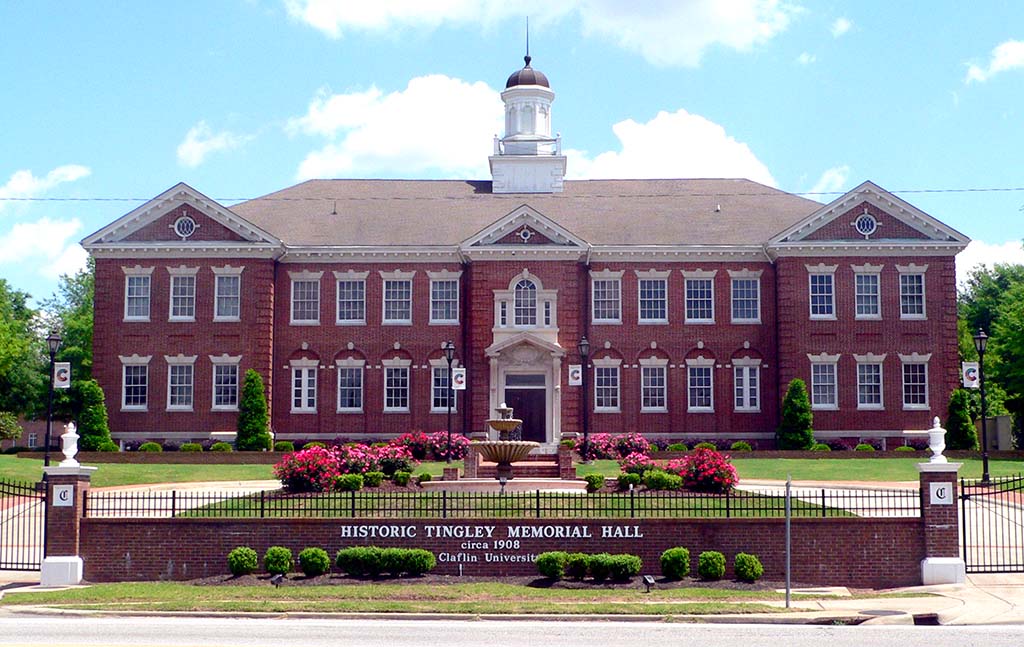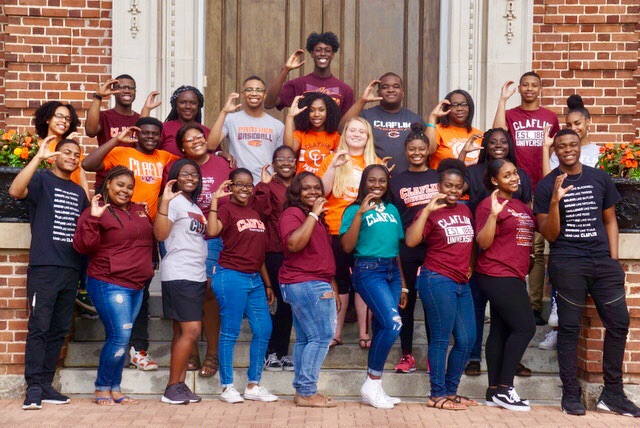The first time I saw crops grow out of the ground, I was driving to Claflin University for a campus tour.
It was mid-fall, hurricane season in full-swing, and the moody skies were laden with an unbreakable gray. I was no stranger to South Carolina, being a regular visitor to Columbia since birth, but it was this long, bone-straight state road – and the rural communities it connected – that were novel to me. Eventually, these roads led me through the Midlands to the very center of the state: Orangeburg, South Carolina. And it was there that I learned to widen my perspective, step boldly into my gifts, and answer readily when I am called to serve my community. For if not me, then who? If not now, then when?
It was at my HBCU (Historically Black College or University) that I discovered being a better me could have a tangible impact on the world.

Claflin University is the oldest HBCU in South Carolina, resting on a tranquil campus that houses no more than 3,000 students. Orangeburg, the city it resides in, is just as humble, with a singular supermarket, a handful of restaurants, and the nearest major movie theater being a 45-minute drive away. Growing up in Atlanta, which has an infrastructure exceedingly different from that of my new campus home, I was inundated with new backgrounds, histories, accents, and perspectives from all over the state, region, country, and world. I was a Black woman whose maternal ancestors were from this very state, yet even I still had to adjust to a new space, routine, and purpose. I decided to focus on understanding the people around me, building relationships with them, and embracing the academic community I was now a part of. I hoped that one day I too could contribute meaningfully to that community and leave it better than I found it.
I spent four beautiful years on that campus, interrupted only by a semester abroad in Japan and a global pandemic that sent us home for a semester. But I left, not simply with a degree in my hands and lifelong friends in my network, but with skill, tenacity, and the renowned “Claflin Confidence” that empowered me in every step I took after crossing that stage. I keep it with me even now, as I step into my role as a USDC Design Fellow.

I’m still very new to government, but what I do know about public service is that it is indeed about serving. When I think of the ways I can use my content design skills, experience, and expertise to palpably impact the lived experience of people in this country from Orange County to Orangeburg, I point to the heart for giving, serving, and caring for others that my HBCU instilled in me. It is in fact this very same heart for service and care that HBCUs as institutions were founded on.
These efforts to educate formerly enslaved people and their families was about, and interconnected with, the success of the community from the beginning. I am a product of that investment, and through this fellowship, every team and project I’m a part of – and by extension the people that will one day use what we build – will be able to reap from what was sown into me. I came to USDC to serve the American public through human-centric content design. I came to serve and to give my best, because as the late Alice Carson Tisdale often reminded her Honors College students, to whom much is given, much is required.
I applied to USDC because this country and the people in it need better design.
And if not me, then who?
If not now, then when?
Thalia Butts is a 2024 Design Fellow in the U.S. Digital Corps. Learn more about her background on the USDC website.
Applications for USDC’s 2025 cohort will open this fall. Subscribe to our newsletter and follow us on LinkedIn to stay in the loop with updates, events, and opportunities to apply.


